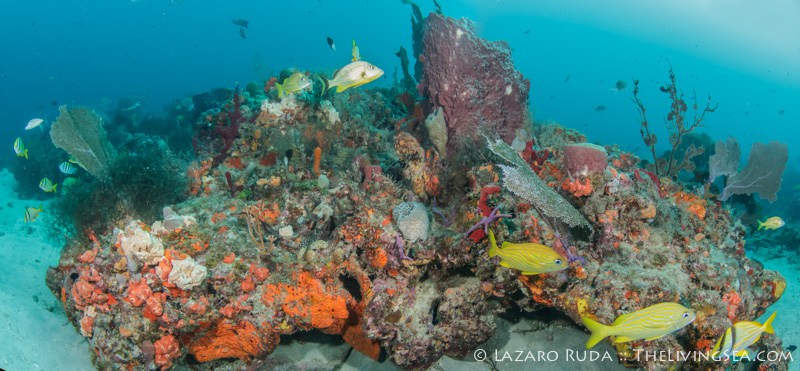Threats to Coral Reefs
Coral reefs are extremely important for a multitude of reasons. They provide habitats, food, and a rest stop for migratory marine life. They are also important to us as well, as they provide important medicinal resources, food, ecotourism, and protection from storm and wave damage.
Threats that they Face
Unfortunately, coral reefs are very sensitive to changes in their habitat conditions. They cannot withstand the warming of the waters due to global warming, nor pollution or increased sedimentation from beach front development.
Coral reefs are under threat in many different ways, some of which include;
- Trawling - a type of commercial fishing were a giant, weighed down net is dragged across the ocean floor. Very destructive to everything in its path.
- Pollution - agricultural run off as well as other forms of pollution lead to increased levels of nutrients and heavy metals in the ocean. this leads to algal blooms and the accumulation of chemicals in organisms (biomagnification).
- Plastic waste - the average american throws away 185 lbs of plastic a year, which means, that as a country, we throw away over 60 billion pounds of plastic a year. A lot of that makes its way into the ocean, and organisms eat it and either choke to death or starve because they cannot digest the plastic.
- Sedimentation - urban development along the coast causes run off to enter reef areas, smothering corals and decreasing the amount of light reaching them. Corals need the light since they have the photosynthetic Zooxanthellae
- Warming of the ocean - corals are very sensitive to temperature change, and prefer water temperatures between 73-84 degrees Fahrenheit. they can tolerate higher temperatures for short periods of time, but global warming has caused extended periods of warm water temperatures that the corals cannot tolerate.
- Overfishing - coral reefs are home to many species of fish, some of which are popular for commercial and recreational fishing. Fishing is not a bad thing when done in a sustainable way, but many fish are still overfished or caught as bycatch.
- Invasive species - invasive species such as the lion fish and tilapia, out compete native fish and mess with the balance of the coral reef ecosystems.
- Eutriphication - this is caused by an increase in levels of nutrients in an ecosystem. The increase causes massive algal blooms, which when they die off are eaten by bacteria. The increase of bacteria from the surplus of food for them leads to oxygen depletion which spawns mass fish kills.
- Coral Harvesting - corals are extracted from reefs to either end up being sold to aquariums, private owners, as jewelry or decorative pieces. This can lead to over harvesting of corals.
- Tourism - while tourism is good for the Florida economy and ecotourism helps to promote the protection of the environment, sometimes too much of it can be a bad thing. Tourists can accidentally destroy reefs by not being careful or taking corals and other items from their natural habitat. Also, businesses in it for the money and not for the conservation can cause damage as well, by not properly running their operations.
